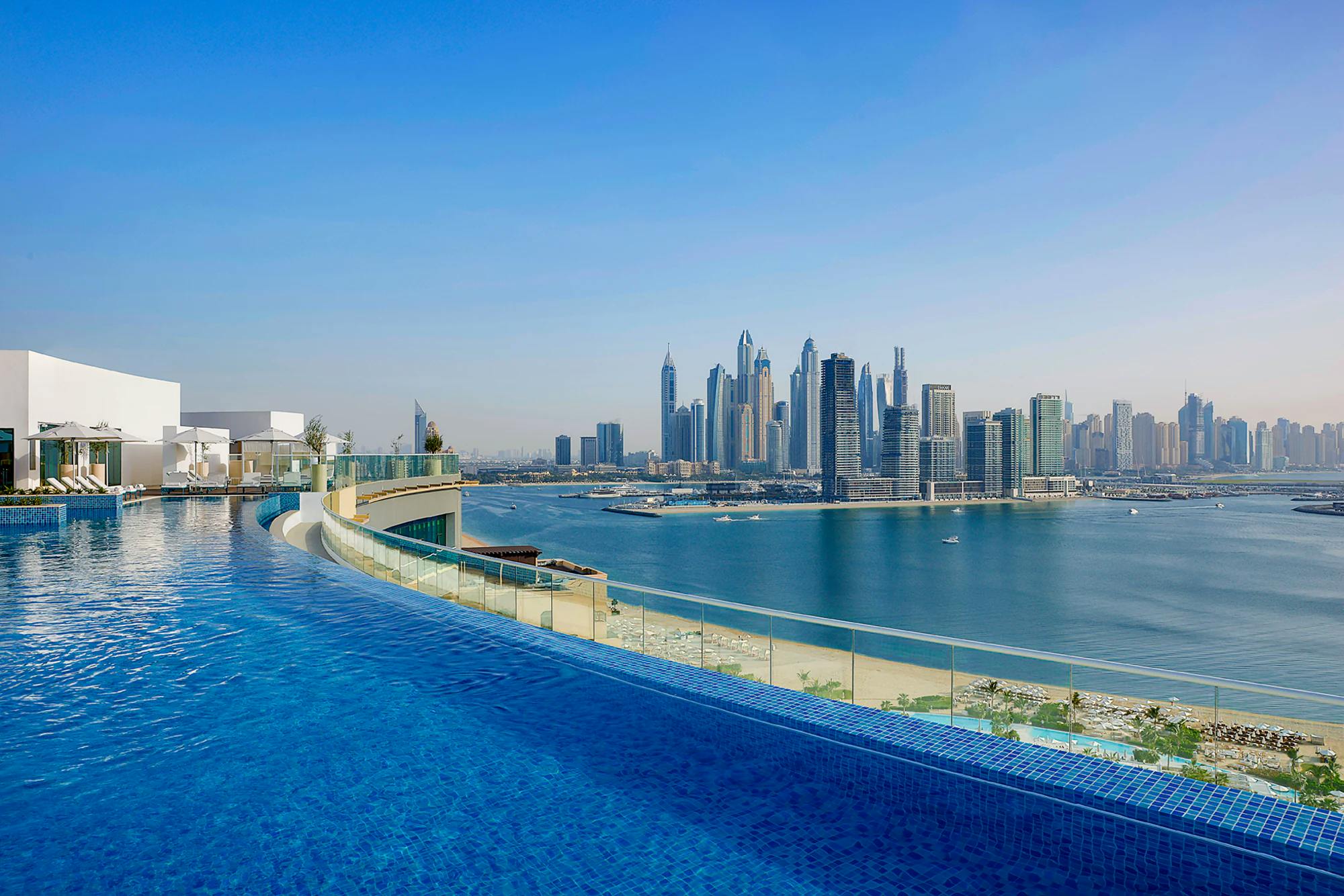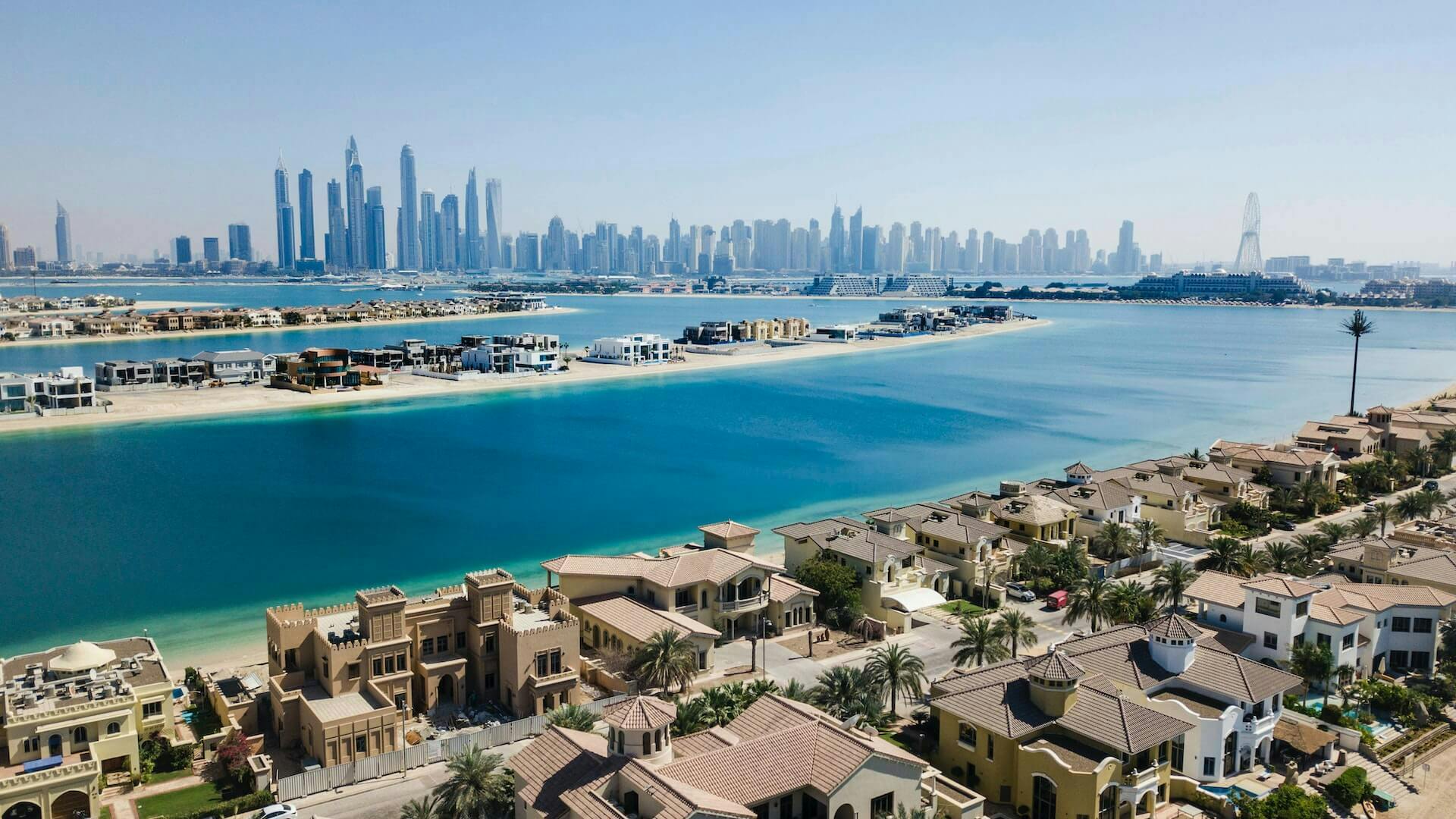Guide to Understanding UAE Residency Visa Options: Navigating Your Legal Status
The UAE has a number of different residency visa options available. We deep dive into the differences and which one is the right one for you and your family.

When considering a move to the UAE, one of the most critical decisions you'll face is choosing the right UAE residence visa.
This official document is not just a legal requirement; it unlocks the door to countless opportunities within one of the world’s most dynamic economies.
Whether you’re planning to work, invest, retire, or bring your family along, the UAE UAE residence visa will serve as the key to your future in this vibrant and progressive country.
It's not just a piece of paperwork; it's an essential element that opens up the full potential of life in the UAE, allowing you to experience all that the country has to offer.
The UAE government offers a wide range of UAE residence visa options to cater to various needs, making it easier for expatriates to thrive in the country.
From entrepreneurs launching new businesses to skilled professionals seeking career advancement, there’s a visa that aligns with your goals.
With its growing expat community and thriving industries, the UAE has quickly become a top destination for foreign nationals to work, invest, or simply enjoy the luxurious lifestyle.
These options are designed to accommodate individuals with diverse backgrounds, whether you're an employee, business owner, investor, or even someone looking to retire in one of the most attractive locations globally.
In this guide, we’ll break down the different types of UAE residence visa, explain the eligibility criteria for each, and guide you through the application process.
Our goal is to help you navigate your legal status with ease, whether you're moving to Dubai for work, planning a smooth retirement, or establishing your business in one of the world’s most business-friendly hubs.
We’ll cover everything you need to know about how to apply, the required documentation, and how to ensure that you meet all the criteria.
Understanding these processes will ensure that you can take full advantage of the opportunities available to you as you begin your new chapter in the UAE.

1. Types of UAE Residency Visas
The UAE offers several residency visa options, each designed to cater to specific categories of individuals. Below, we’ll look at the most common types:
Employment Visa
The Employment Visa is one of the most common types of UAE residence visa for foreign nationals. It's issued to individuals who have secured employment in the UAE, and it allows them to legally work and reside in the country. This visa is typically sponsored by your employer and is renewable on an annual basis.
- Eligibility Criteria: You must have a job offer from a UAE-based company.
- Application Process: Your employer handles the bulk of the application, though you’ll need to provide necessary documents such as your passport and proof of medical fitness.
Investor or Business Owner Visa
If you’re an entrepreneur or investor, you can apply for a UAE residence visa under the investor or business owner category. This is perfect for individuals looking to set up their own business in the UAE, especially in the free zones.
- Eligibility Criteria: You must own or co-own a business in the UAE.
- Application Process: You’ll need to provide your business registration documents and proof of ownership.
Freelancer Visa
The UAE also offers a Freelancer Visa, which is ideal for individuals working in industries such as technology, media, and consulting. The freelancer visa allows you to work independently, without the need for a traditional employer.
- Eligibility Criteria: Proof of skills in a qualifying field.
- Application Process: Applications are often handled through free zone authorities and may require a portfolio or a demonstration of work experience.
Retirement Visa
For expatriates over 55 who wish to retire in the UAE, the government offers a Retirement Visa program. This visa allows retirees to live in the country without the need for a work contract.
- Eligibility Criteria: You must meet specific age and financial criteria, including a minimum level of income or savings.
- Application Process: Proof of retirement savings and income must be provided, along with medical fitness.
Student Visa
For students looking to pursue higher education in the UAE, the Student Visa is the ideal option. This visa allows students to study in the country while offering the option to work part-time.
- Eligibility Criteria: You must be enrolled in an accredited educational institution in the UAE.
- Application Process: A letter of admission from the educational institution is required, along with financial proof.
Family Visa
If you’re moving to the UAE and wish to bring your spouse or children along, you can apply for a Family Visa. The sponsor (usually the primary visa holder) must prove financial stability to sponsor their family members.
- Eligibility Criteria: You must have a valid UAE residence visa and meet income requirements to sponsor your dependents.
- Application Process: Submit a marriage certificate, children’s birth certificates, and proof of financial status.

2. Eligibility Criteria for UAE Residency Visas
Each type of UAE residence visa has its own set of eligibility requirements. While they vary by category, there are several general requirements that you must meet to qualify for a UAE residence visa in the UAE:
- Valid Passport: Your passport must be valid for at least six months before applying.
- Proof of Health Insurance: Health insurance is mandatory for all residents of the UAE, and proof of coverage will be required during the application process.
- Good Conduct Certificate: A police clearance from your home country may be required.
- Medical Fitness Test: All applicants must pass a medical examination, which typically includes blood tests and a chest X-ray.
3. Steps for Applying for a UAE Residency Visa
The process of applying for a residency visa can be broken down into several key steps, which may vary depending on your visa type:
Step 1: Determine the Right Visa Type
The first and most crucial step in applying for a UAE residence visa is determining which type of visa best suits your purpose in the country.
The UAE offers a range of UAE residence visa options, each catering to specific needs, such as employment, business ownership, freelancing, or retirement.
For example, if you're moving to the UAE for work, you will likely need an employment residency visa, which is typically sponsored by your employer.
If you're looking to establish your own business, you would need a business or investor visa.
For retirees, there are specific retirement visas available, allowing you to enjoy a comfortable life in the UAE’s thriving expat community.
Step 2: Gather Required Documents
Once you’ve determined the appropriate residency visa for your needs, the next step is to gather all the necessary documents for your application.
The required documentation can vary depending on the visa type, but common documents include your passport, recent photographs, proof of income or employment, and a medical certificate.
For an employment visa, you will need a copy of your employment contract and proof of employment.
For a business visa, documentation related to the establishment of your business, such as a trade license, will be required. For retirees, you may need to submit proof of financial independence or pension.
Step 3: Submit Your Application
After gathering all the necessary documentation, the next step is submitting your UAE residence visa application.
In most cases, applications are submitted to the UAE’s immigration authorities through an online portal or at a local government office.
Depending on your visa type, you may need to submit your application through a specific free zone or government department.
For example, if you are applying for a visa as a freelancer, you may need to submit your application through a free zone authority, while employees would typically submit their applications via their employers.
Step 4: Medical Examination
Once your UAE residence visa application has been submitted, the next step in the process is undergoing a medical examination at an approved health center.
This is a mandatory step for all visa applicants to ensure that they are medically fit to live and work in the UAE. The medical examination generally involves a series of tests, including a blood test and a chest X-ray to check for infectious diseases such as tuberculosis.
The medical exam is designed to ensure that new residents do not pose a health risk to the general population and to confirm that they are in good health before arriving in the country.
Step 5: Wait for Approval
After submitting your documents and completing the medical examination, the next step is to wait for approval from the UAE immigration authorities.
The processing time can vary significantly depending on the visa type and the complexity of your case. In general, the processing time ranges from a few days to several weeks.
For simple cases, such as employment visas, the approval process may be relatively quick.
However, for more complex cases, such as business or investor visas, it may take longer due to additional paperwork or approvals required from other government departments.
Step 6: Receive Your Residency Visa
The final step in the UAE residence visa process is receiving your approved visa, which allows you to legally live and work in the UAE.
Once your residence visa is approved, you will be issued a residence permit, which will typically be valid for one to three years, depending on your visa type. You may also receive a residency card, which serves as an official identification document in the UAE.
Once your residence visa is issued, you are officially a resident of the UAE and can start enjoying the benefits of living in one of the world’s most vibrant and business-friendly environments.
Be sure to stay aware of any visa renewal requirements or other obligations to maintain your residency status throughout your stay in the country.4. Benefits of a UAE residence visa

Obtaining a UAE residency visa comes with numerous advantages, including:
- Access to Healthcare: All residents are entitled to access healthcare facilities.
- Opportunity to Start a Business: With the right visa, you can set up a company in one of the UAE’s free zones or mainland.
- Tax Benefits: The UAE offers a tax-friendly environment, including no income tax for individuals and low corporate taxes.
- Residency for Family Members: You can sponsor your spouse and children for residency, allowing your whole family to live in the UAE.
5. Important Considerations
While the process is relatively straightforward, there are a few things to keep in mind when applying for a UAE residence visa:
- Renewal Process: Most residence visa require renewal every 1-3 years, depending on the visa type.
- Compliance with UAE Laws: Once you're granted a residence visa, it’s important to adhere to local laws, including paying taxes (if applicable) and following the country’s cultural norms.
- Work Restrictions: Some visa types, such as the Student or Freelance Visa, may come with restrictions on the type of work you can perform.
What is a UAE residence visa?
A UAE residence visa is an official document issued by UAE immigration authorities that grants foreign nationals permission to reside and work in the country for an extended period.
Depending on the type of visa, the residence permit is typically valid for two to three years and can be renewed based on your status.
The UAE residence visa also provides multiple entry options, allowing for flexible travel in and out of the country, depending on the requirements of the visa holder.
Some visas may allow for single-entry, while others may enable multiple entries during the visa's validity period.
Different Types of residence visa in the UAE
There are various types of residence visas available for foreigners looking to move to the UAE. These can be broadly categorized into long-term residence visa and short-term non-residency visas.
Long-Term Residency Visas
These are designed for individuals planning to stay long-term in the UAE, such as entrepreneurs, business owners, skilled professionals, retirees, and remote workers.
These visas typically last between two to three years and can be renewed depending on the individual's eligibility.
Short-Term Non-Residency Visas
For those who plan to visit temporarily, the UAE also offers short-term visas such as tourist visas, transit visas, and medical treatment visas.
These are valid for shorter durations and do not allow the holder to work or establish permanent residency.
Dubai Residency Visa: A Path for Entrepreneurs
The business residency visa is one of the most sought-after options for those wanting to set up or run a business in the UAE.
Entrepreneurs with a robust business plan or existing companies can apply for this visa after registering their business with the relevant authorities.
The visa holder can operate their business in the UAE for two to three years, with the option for renewal if the business remains compliant with local regulations.
Additionally, with this visa, you can sponsor family members to live with you in the UAE, allowing for family reunification while you focus on growing your enterprise.
Remote Work Visa: Embrace the UAE Lifestyle
The UAE's remote work residency visa has emerged as a flexible and attractive option for professionals working remotely for overseas companies.
If you have a valid contract with a foreign employer and earn at least USD 5,000 per month, this visa lets you live and work from the UAE while maintaining your professional obligations abroad.
Key Benefits of the Remote Work Residency Visa:
- Work remotely from the UAE with access to essential utilities, telecommunications, and banking services.
- Renew the visa annually as long as you continue to meet the eligibility criteria.
- Sponsor family members to live with you in the UAE.
This is an excellent option for foreign nationals looking to enjoy a tax-free lifestyle while benefiting from the UAE’s modern infrastructure and relaxed visa policies.
Retirement Visa: A Golden Opportunity for Retirees
The retirement visa is designed for individuals over the age of 55 who wish to retire in the UAE. Valid for five years, it can be renewed if the holder continues to meet specific financial requirements.
To be eligible for the retirement visa, you must:
- Have a monthly income of AED 20,000 or more,
- Hold financial savings of at least AED 1 million,
- Own property worth at least AED 2 million.
This visa offers retirees the opportunity to settle in the UAE, benefiting from its high standard of living, world-class healthcare, and excellent amenities.
The Golden Visa: Exclusive Residency for Exceptional Talent
The Golden Visa is a long-term residency visa for exceptional individuals who have made notable contributions to their fields. The visa is typically issued for five to ten years and is available to:
- Investors
- Skilled professionals
- Outstanding students
- Humanitarian pioneers
- Frontline heroes
The Golden Visa provides numerous benefits, including the ability to sponsor family members, remain outside the UAE for more than six months without losing residency status, and unlimited sponsorship of domestic workers. To qualify, individuals must meet specific criteria, such as making a substantial investment of at least AED 2 million for investors.
UAE Family Visa: Bringing Your Loved Ones to the UAE
The UAE family visa allows expatriates to sponsor their family members (spouse, children, and dependents) to live with them in the UAE. The family visa is generally valid for one to three years, depending on the sponsor’s visa status and income level.
How to Sponsor Family Members:
- Submit an application to the UAE immigration authorities.
- Provide supporting documents like proof of income and a marriage certificate.
- Ensure that your family members meet the age and dependency criteria.

Other Types of UAE Visas
In addition to the residence visa options mentioned, the UAE offers other short-term visa options such as:
- Tourist Visas: These visas are granted for short visits to the UAE, typically ranging from 14 to 90 days, allowing tourists to explore the country. However, working on a tourist visa is prohibited.
- Medical Treatment Visas: If you're seeking medical treatment in the UAE, this visa can be issued for up to 90 days, with the possibility of extension.
- Student Visas: For international students wishing to study at a UAE university, this visa is typically valid for one year and can be renewed until the completion of the student's studies.
How to Apply for a UAE Residency Visa
To apply for a UAE residency visa, follow these steps:
- Submit your application through the UAE government portal or the relevant authority.
- Provide supporting documents such as your passport, medical fitness certificate, proof of income, and any other documents required by the visa type.
- Pay applicable fees and undergo medical examinations.
- If you were on another visa, ensure to provide the signed visa cancellation paper before applying for your new visa.
Once approved, applicants receive an entry permit, allowing them to enter the UAE and complete the remaining residency formalities.
Residency Visa Renewal Process
The renewal process for a UAE residency visa is simple but must be done before the visa expires to avoid penalties. You'll need to submit necessary documents such as proof of income and medical fitness reports. Some visa holders may also need to provide a signed visa cancellation paper if renewing after a change in residency status.
Key Considerations for UAE Residents
Before relocating to the UAE, it's essential to understand that residents are required to obtain an Emirates ID card, which serves as a personal identification card for accessing services such as healthcare, banking, and government services. Furthermore, health insurance is mandatory for all UAE residents.
Conclusion
Whether you're an entrepreneur, skilled professional, retiree, or student, the UAE offers a variety of residency visa options to suit your needs. Understanding the different types of UAE residency visas, their eligibility criteria, and the application process will ensure a smooth relocation to this thriving country.
For more information on how to get a residence visa in the UAE or explore business opportunities, sponsor family members, or apply for a Golden Visa, don’t hesitate to reach out to us. Our team can guide you through the process, ensuring you secure the best visa option to make the UAE your new home. Contact us today for a consultation and start your journey toward UAE residency.




